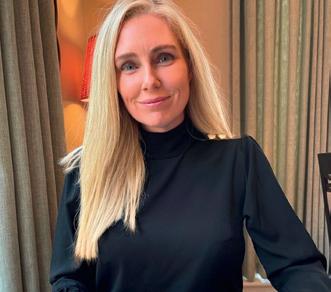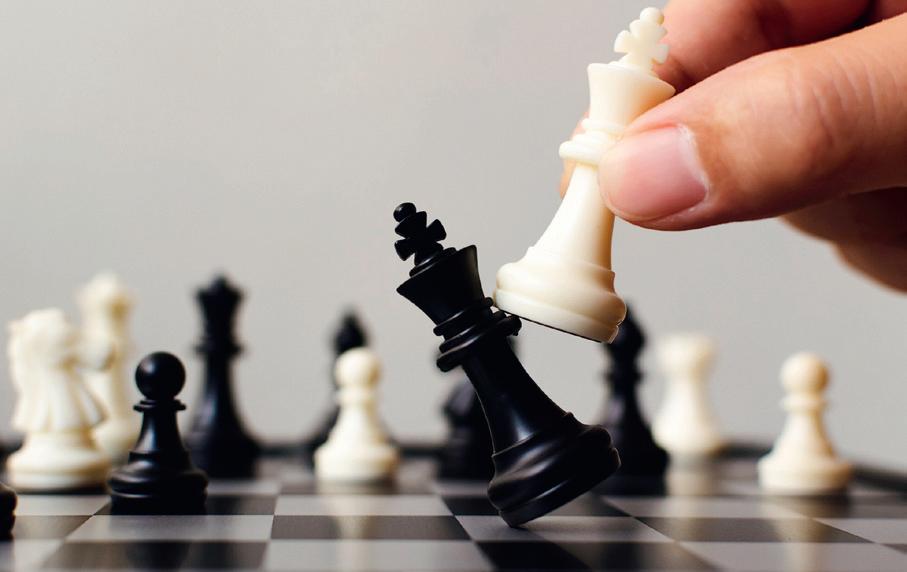
4 minute read
HOME HELP BY NICKIE
PETTITT
My name is Nickie and I set up Gastons Home Help after my father sadly died from terminal cancer. He lived 40 miles away and it was a huge adjustment to take care of him. During the later stages of his illness it made me realise what was missing in the industry. He didn’t need a carer or personal care, but someone to visit each day to make sure he was still eating and drinking efficiently and raise any concerns to his relatives.
Advertisement
I set up Gastons to build a bridge for other families and their relatives to take the strain off and give them peace of mind. Each plan is tailored for individuals so their needs are met. Some of my clients have a 2-hour clean once a week, others I visit up to three times a day to give them a wake-up call, breakfast, put some washing on, change bedding, prep a lunch and an evening call to check in and make a light evening meal and give them a bit of companionship. These small check-ins have been invaluable in keeping people safe whilst keeping their independence at home. I communicate regularly with relatives and respond to queries or concerns out of office hours. I know that sometimes just knowing relatives are ok gives peace of mind and it’s my duty to make sure that happens. I visit many clients in the Felpham area. The business is a domestic support-only service, with no personal care involved and it’s just me which means I build a great rapport with my clients. I hold a full enhanced DBS, Level 1 and 2 hygiene certificate and I undertake regular training courses. Everyone is offered a free pre-assessment visit to give a good evaluation of what is needed, to see if I can help and to introduce myself.


Please visit www.gastonshomehelp.co.uk to find out more or contact me on 07949823296 or email: gastonshomehelp@yahoo.com


Dr Davina Mahoney Dr John Harker Dr Mauricio Carrillo Dr Sharad Patel
If you have moved to this area, or are looking for a new dentist, we would love for you to come and join our friendly Bognor Regis practice. We pride ourselves on a partnership built on trust and mutual respect to improve your dental health. We aim to work with you to provide optimum dental care with the latest and advanced dental treatments, transparent costs and a friendly experience every time you visit us.
• Free initial consultation
• Latest implant technology including on-site 3D CBCT scanner
• No more gaps or dentures
• Eat, chew and smile with complete confidence
• We accept referrals from other dental practices for complex single and multiple dental implants


At Felpham Dental we offer a full range of cost-effective treatments for both general and cosmetic dentistry. These include whitening, veneers, crowns, white fillings, dental implants, root canal treatments and facial aesthetics including intradermal wrinkle treatments.
We accept referrals for complex root canal treatments with Dr John Harker, and oral surgery referrals including facial pain and migraine, with Dr Mauricio Carrillo.
Invisalign Teeth Straightening

• Free initial consultation
• Almost invisible teeth straightening
• Faster straightening of teeth
Direct Hygienist Access
You can directly access our full team of dental hygienists: Elizabeth Goodchild, Jane Gander and Helen Carter even if you are not a registered patient.
Emergency Dental Care
Please call 01243 864663 and speak with Chrissie or Tracey.
Contact us:
Felpham Dental
83 Felpham Road
Bognor Regis.PO22 7PF
(Opposite Milestones Garage)
Tel: 01243 864663 felphamdental@aol.com www.felphamdental.com
Chess By Tracey Anderson
Chess Has A Long And Interesting History
Chess is a popular strategic board game that has been played for centuries. It originated in northern India or ancient Persia, around the 6th century AD, and quickly spread to the rest of the world. The game has undergone several modifications over the years, but the basic rules and objective remain the same: to checkmate your opponent’s king.
The game was introduced to the Western world through the Islamic Empire and quickly became popular among nobles and royalty. In the early days, the pieces had different names and moves, but slowly evolved over time until the 16th century in Europe when it began to resemble the game we know today.
During the 19th century, chess experienced a surge in popularity, thanks to the invention of the printing press and the production of the first commercially available books on the game. The first international chess tournament was held in London in 1851, and the first world championship was held in 1886. The tournament format and time controls used in modern chess were established during this period.
The United States and Russia’s longstanding rivalry peaked during the Cold War years. Chess matches provided a somewhat unlikely means for these two superpowers to fight proxy wars, using their chess champions in battles for intellectual and cultural superiority.
In the 1960s and 70s, chess was a major source of national pride for the Soviet Union. The country’s top chess players were seen as ambassadors of Soviet superiority and Soviet chess players were considered the best in the world. In response, the United States began to invest heavily in its own chess programme, seeking to prove that American chess players were just as good as their Soviet counterparts. This rivalry reached its peak in the 1970s, with several high-profile matches being played between top players from each country. The matches were widely covered by the media and became major events in the cultural landscape, with each victory being seen as a sign of superiority of one side or the other in the larger struggle between the two nations.
Probably the most famous of these matches was the 1972 World Chess Championship, where American Bobby Fischer defeated Soviet Boris Spassky in a legendary showdown that was seen as a major victory for the US and a significant blow to Soviet prestige. The match was dubbed the “Match of the Century” and its impact was felt far beyond the chess world, with many people viewing it as a symbol of American superiority over the Soviet Union.
In the late 20th century, the popularity of chess reached new heights, thanks to the rise of computers and the development of chess software. The first computer chess programme was written in 1951, and the first computer vs. human chess match was held in 1997, in which the computer, Deep Blue, defeated the reigning world champion, Garry Kasparov.
Despite the growth of computer chess, the game continues to be played by millions of people all over the world, both online and offline. Chess clubs and tournaments are held regularly, and the game is taught in schools as a way to improve critical thinking and problem-solving skills.
If you have a chessboard tucked away in a cupboard somewhere, isn’t it time you learned to play?













